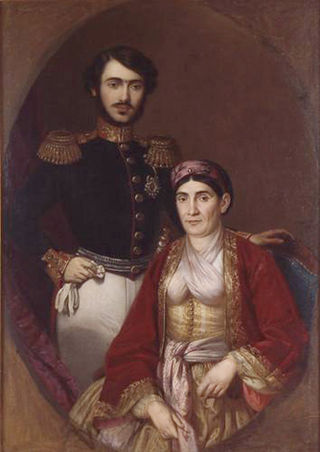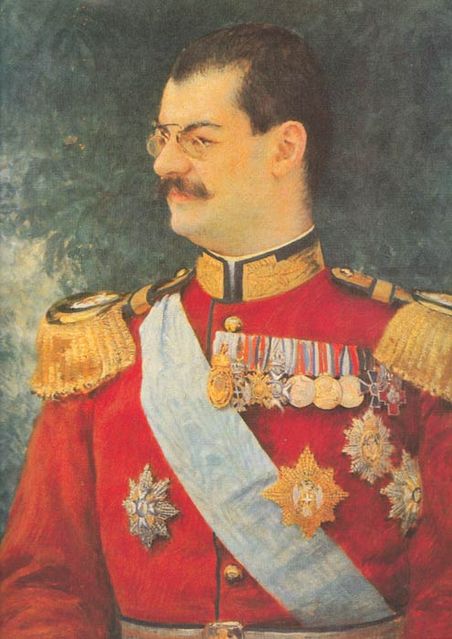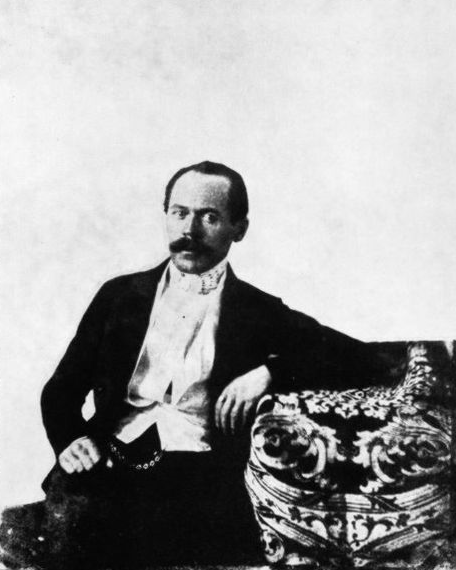OUR BLOG
FILIP HRISTIC
SERBIAN DIPLOMATS

Filip Hristic was a Serbian politician, prime minister of the Principality of Serbia, minister of foreign affairs, minister of education, member of the State Council and governor of the National Bank. During his long life, he significantly influenced the development of legislation, diplomacy, education, culture and fiance in Serbia.
He was born in Belgrade in 1819. He was the son of Hristo Djordjevic, a distinguished fighter in the First Serbian Uprising. Having lost his father at an early age, he grew up in poverty, which is why he was known as “the son of Katarina, the poor merchant’s widow” before going to study.
Due to the fact that male children often died in their family, his father vowed Filip to Hilandar, and intended to direct him to the monastery life. However, Filip’s path was different.
After his father’s death, he was adopted. He lived and studied with Serbian Metropolitan Melentije Pavlovic, who recommended him to Princess Ljubica. Thus, Filip became friends with the sons of Prince Milos Obrenovic, Milan and Mihailo. He attended high school in Kragujevac, graduated from Lyceum in Belgrade and continued his education as a state student in Vienna and Paris, where he obtained a doctorate in law from the Sorbonne.

Ljubica Obrenović with her son Milan
In the state administration, at the end of the rule Aleksandar Karadjordjevic, to whom he was loyal, he was employed as a commissioner of the Danude Commission and became a member of the Council. After the return of Milos Obrenovic to power, he became his personal secretary. History records that during the reign of Prince Mihailo, he was Prime Minister and Minister of Foreign Affairs.
He began his diplomatic career in 1851 in Constantinople as diplomatic representative. He was a delegate of Serbia for the conclusion of peace with Turkey, but also a deputy in Vienna, Berlin and London and a trustee in numerous diplomatic missions.
PRIME MINISTER
When he represented his government during the reign of Prince Mihailo, Hristic emphasized that ministers should listen to the Prince and do what the Prince ordered them to do. It was a substantial change, because in the era of the constitution, the Council controlled the ministers.
Hristic did not have the real authority of the prime minister, so quarrels often broke out among the ministers. Despite the fact taht during his government the Preobraženska Assembly was held, at which basic laws were adopted and which significantly altered the Turkish Constitution of 1838, Hristic still had to resign in the end.
GOVERNOR OF THE NATIONAL BANK OF THE KINGDOM OF SERBIA
A year after the establishment of the National Bank of the Kingdom of Serbia, on February 27, 1885, Hristic was appointed governor, responsible for the construction of the National Bank building. He was remembered as a Serbian diplomat, who was the first in Belgrade in his time to wear a top hat, always helpful and kind, and the favorite person first at the Karadjordjevic and then at the Obrenovic court.
He was a regular member of the Society of Serbian Literature, the Serbian Learned Society and an honorary member of the Serbian Royal Academy. By decree of King Aleksandar Obrenovic in March 1903, he became a lifelong senator of the Kingdom of Serbia.

King Alexander Obrenović
He was married to Danica, daughter of Belgrade wholesaler and millionaire Hadzi-Toma. Their son Milan Hristic was the secretary of the Embassy of Serbia in Constantinople, extraordinary deputy and minister plenipotentiary of the II class in the Serbian Embassy in Berlin. Their great-grandson Jovan Hristic was a general consul in Trieste.








 2018
2018